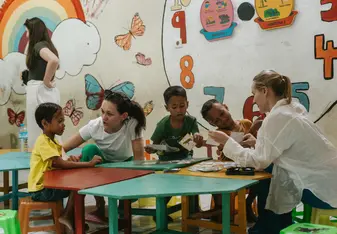Conservation Research Assistant Program in Indonesia
- Indonesia
About Program
Operation Wallacea is a research and environmental organisation, working alongside university and college academics to build long term datasets to put towards various conservation management goals. We recruit volunteers to help out with the data collection, and train them in the skills and background that's needed to help effectively. There's also the option to complete dissertations or senior theses at our sites.
The Indonesia projects are based on Buton Island and the nearby Wakatobi island group, and are Opwall's longest running projects. The marine site alone has published over 90 scientific journals, and the forest site has described 21 new vertebrate species to science. The marine site also feeds data gathered from the reef monitoring programs directly back to the Indonesian government.
There are a large number of 2023 projects students can get involved with, with surveys on everything from the endemic Buton macaque down to herpetofauna and invertebrate species.

































